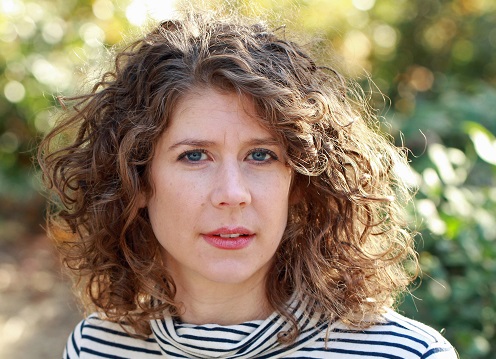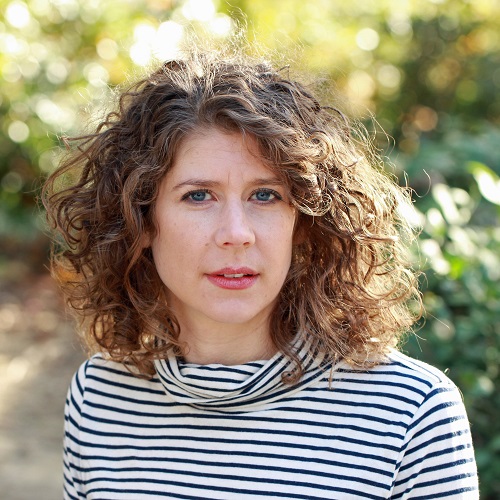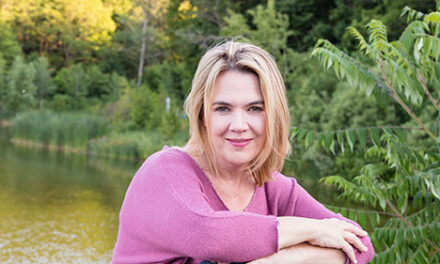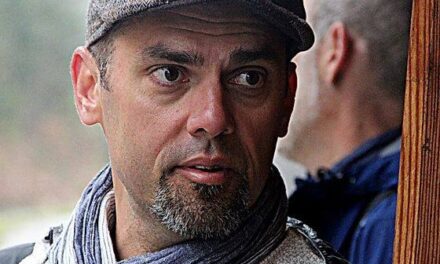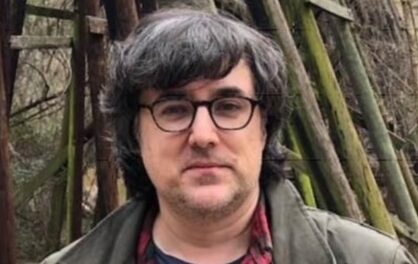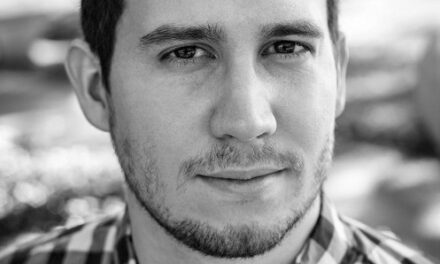[Editors’ note: This miCRo will be our last until mid-January! Enjoy the final days of 2021 in the meantime.]
Assistant Editor Lily Meyer: In “Trespassing,” Jaclyn Gilbert gently troubles her protagonist’s concepts of physical privacy and, perhaps, troubles her readers’ notions as well. She blurs pregnancy with residency, residency with intrusion. Her delicate prose prevents this investigation from ever becoming threatening or overwrought; instead, in her hands, the idea of trespass becomes both seductive and comforting.
To hear Jaclyn reading her story, click below:
Trespassing
I’ve been glad for the absence of mirrors here. Glad not to see myself growing softer, my thighs rounding, my hips widening. When I first arrived at the house three days ago, I told myself I’d be better. I would walk an hour every day now that I couldn’t run, or at least wasn’t supposed to. I’d stay away from sugar. I’d eat only from the tote bag of fruits and vegetables that I’d brought with me, seeing that the only store in town was five miles away, and I was without a car.
The house has wall-to-wall glass windows. Lights adjust automatically, depending on the time of day. There are also touch sensors on the stove and refrigerator to remind me when I’ve left a door open or a pot on the burner too long. There is a note in bold letters on the countertop that warns against ever going anywhere without a coaster—these small circles of cork I carry with me each time I sit down with a cup of coffee to work.
Every morning, I write in a small red notebook. I meditate. In the afternoon, I practice chair ballet. In the early evening, I cook vegetables, pounds of them, and then I take long walks down Old Albany Post Road. Eventually, I ascend a steep sequence of hills, past a range of affluent farmhouses, the reds and yellows of certain residences drawn pale by the soft gray light of dusk. According to my map, it shouldn’t be difficult to find the Appalachian Trail nearby, but my poor sense of direction has confounded me for days. How am I to discern where one dirt road ends and another begins? Or where the line lies between the architect’s house in the woods and another person’s property?
One night I wake to the crack of thunder, almost enough to shatter the fragile walls around me. I press a button on a control by my nightstand. White blinds covering the windows move up in a steady thrum. As I descend downstairs to the kitchen, I am calmed by the hard wash of rain over glass, while I remain safe inside. Warm.
In time the storm clears. The sun scintillates, filling the kitchen with light. I look up from the apple I am slicing to find a small bird with dusty blue wings and a gold belly diving into the window. The bird flings its body into the glass five or six times before it retreats into the woods. But it isn’t long before it returns again, hungry to hurl its body harder into the panes.
“Don’t hurt yourself,” I whisper. I want to open the window, but there is the architect’s ivory bookcase stacked with modern classics, the soft hardwood of her handcrafted table, her Venetian fruit bowl toppling with green apples.
I think the bird has left, but then I hear it again upstairs, banging. When I go to find it, there are only the windows empty of everything but light. Later, I think of the storm winds, the confusion the bird might have suffered. How easy it would seem to continue on its flight, unhindered by anything.
When I was a child visiting my father on the weekends, he had an apartment by the sea with mirrors for walls. While he watched sports on television, I cleaned the mirrors. I would spray the glass down with Windex, wiping away the smears that emerged, then reemerged after too much wiping. Still, I’d do it again, over and over, waiting for my father to notice me. But it was only ever my own face in the mirror, my own face staring back at me as I cleaned.
For days here in this house, I have been practicing scanning the inner landscape of my body. I close my eyes to sense the slow, careful formation of a little heart with its own ventricles, the expanding lima bean of a kidney and liver, the separation of cells into hands, feet. Two of everything inside me now.
The bird knocks the window again. I set down my empty plate in the sink. I push open the door just off the kitchen. There are high grasses and a stone walk that leads into the woods. I look up at the sky, then back at the house. The bird is gone.
Jaclyn Gilbert is the author of the novel Late Air, and her short stories, essays, reviews, and interviews have appeared or are forthcoming in Post Road, Tin House, Longreads, Lit Hub, Paper Brigade, and elsewhere. She holds an MFA from Sarah Lawrence College and was a 2019 artist-in-residence at the Byrdcliffe Colony in Woodstock, NY. She is also the founder of the agency collective Drift(less) Literary.
For more miCRo pieces, CLICK HERE

